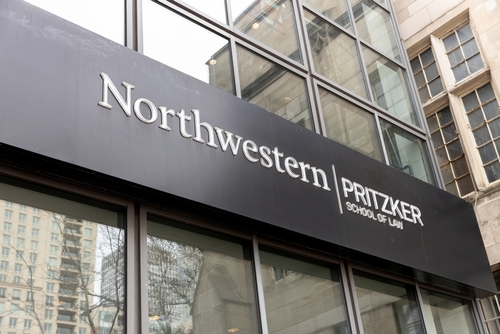Legal Clinics Under Scrutiny: U.S. House Committee Requests Information on Advocacy Practices
April 1, 2025, 2:02 pm CDT
Legal clinics at Northwestern University’s Pritzker School of Law are the focus of a congressional inquiry from the U.S. House of Representatives’ Committee on Education and Workforce. (Photo from Shutterstock)
The U.S. House of Representatives’ Committee on Education and Workforce has initiated a request for detailed information regarding the financial operations and policy oversight of legal clinics at Northwestern University’s Pritzker School of Law. This inquiry raises significant questions about the schools’ use of funding, particularly in relation to their involvement in controversial cases and advocacy efforts.
Concerns Over Clinic Activities
A letter dated March 27 voiced concerns specifically about the Community Justice and Civil Rights Clinic’s representation of individuals involved in protests against an “anti-Israel blockade.” The letter raised alarm about allegations surrounding one individual described as an “antisemite and supporter of terrorism,” calling for “many more Oct. 7ths until full liberation,” tying their actions to broader social justice movements.
Potential Implications for Academic Freedom
Deborah Epstein, a professor at Georgetown University Law Center, has commented on the implications of the committee’s actions, suggesting that such broad demands for information threaten vital principles such as free speech and academic freedom. Epstein criticized the inquiry as a calculated effort to intimidate law school clinics nationwide, ultimately limiting their capacity to engage in advocacy work.
Demands for Information
In its letter, the committee requested:
- Hiring records and performance reviews for clinic staff.
- Written policies outlining acceptable activities and representations by the clinics.
- Detailed budgets for each clinic and legal center affiliated with the Bluhm Legal Clinic.
- A comprehensive list of funding sources and external payments made by the Community Justice and Civil Rights Clinic.
Response from Northwestern University
In response to the scrutiny, Jon Yates, a spokesman for Northwestern University, emphasized that the clinics provide crucial learning experiences for students. He noted that the cases taken on by these clinics span various political perspectives, asserting that the cases selected do not necessarily reflect the views of the university.
Additionally, Yates highlighted that the law school collaborates with external organizations such as the Louis D. Brandeis Center for Human Rights Under Law to combat issues like antisemitism, further demonstrating the institution’s commitment to a diverse array of legal education and advocacy.
While the inquiry into the clinics raises important questions about the role of legal education in advocacy, it also underlines the delicate balance between institutional funding and academic independence.

